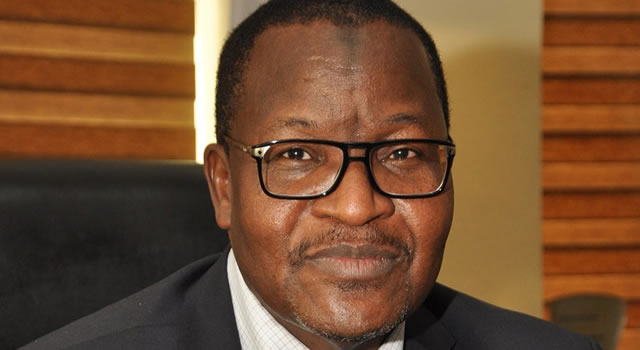Business
NCC, CBN in synergy to ensure financial inclusion for all Nigerians

The Executive Vice-Chairman (EVC) of the Nigerian Communications Commission (NCC) Prof. Umar Danbatta, has said that the commission and the Central Bank of Nigeria (CBN) were strategising on making Nigerians financially inclusive.
Danbatta said that the Federal Government’s financial inclusion strategy was to make 80 per cent of Nigerians financially inclusive.
He made this known, when he delivered a lecture at the 5th Annual Bullion Lecture, organised by the Centre for Financial Journalism, on Thursday, March 11, in Abuja.
The NCC defines financial inclusion as the sustainable provision of affordable financial services that bring the poor into the formal economy.
The Commission mentioned the three key areas for consideration which were: pervasive broadband, digital financial inclusion, and socio-economic transformation.
The theme of the lecture, woven around the Telecoms, Digital Banking, and Nigeria’s Economic Development was: “Driving Pervasive Broadband Penetration to Deepen Digital Financial Inclusion for Nigeria’s Socio-economic Transformation”.
He said that the regulatory role of the Central Bank of Nigeria (CBN) was in the area of driving financial inclusion while the NCC was to provide the pervasive broadband infrastructure that would host those services.
The EVC further defined financial inclusion as the sustainable provision of affordable financial services that bring the poor into the formal economy.
He, however, mentioned the three key areas for consideration which were: pervasive broadband, digital financial inclusion, and socio-economic transformation.
On the pervasive broadband, the EVC said that the NCC was actively involved in the actualisation of the government’s financial inclusion target of 20 per cent exclusion or 80 per cent inclusion by the year 2020.
He also advised that technology and more importantly, broadband, has to play a massive significant role to achieve an accelerated financial inclusion target that the country desired, even as the population grew.
For digital financial inclusion, Danbatta said that digital financial services were offered through the use of mobile phones to access financial services with or without a bank account and to execute financial transactions.
He explained that mobile money, mobile insurance, mobile credit, and mobile savings were all mobile financial services.
“Being able to have access to a transaction account becomes the first step toward broader financial inclusion since a transaction account allows people to store money, send and receive payments.
Read also: Buhari seeks Senate confirmation for CBN, NCC nominees
“A transaction account serves as a gateway to other financial services. Financial access facilitates day-to-day living and helps families and businesses plan for everything from long-term goals to unexpected emergencies.
“As account holders, people are more likely to use other financial services, such as credit and insurance, to start and expand businesses, invest in education, health, manage risks and weather financial shocks which can improve the overall quality of their lives,” he said.
He said that the socio-economic impact of having a sustainable financial inclusion drive was stressed in a report by Boston Consulting Group (BCG), a global management consulting firm, commissioned by Telenor, a multinational telecommunications company.
“The report clearly estimates that one per cent increase in financial inclusion increases the real Gross Domestic Product (GDP) per capita by 3.6 per cent.
“Therefore, access to financial services is a crucial enabler of economic and social transformation of any country.”
Earlier, the Chairman, Board of Trustees, Centre for Journalism (CJF Nigeria), Mr Segun Aina, said that the COVID-19 pandemic and total lockdown brought home the need for deeper broadband penetration.
Aina said that the availability of internet connectivity was a big enabler of financial inclusion as traditional and modern banking was giving way to digital banking and online delivery-related services.
Join the conversation
Support Ripples Nigeria, hold up solutions journalism
Balanced, fearless journalism driven by data comes at huge financial costs.
As a media platform, we hold leadership accountable and will not trade the right to press freedom and free speech for a piece of cake.
If you like what we do, and are ready to uphold solutions journalism, kindly donate to the Ripples Nigeria cause.
Your support would help to ensure that citizens and institutions continue to have free access to credible and reliable information for societal development.






















